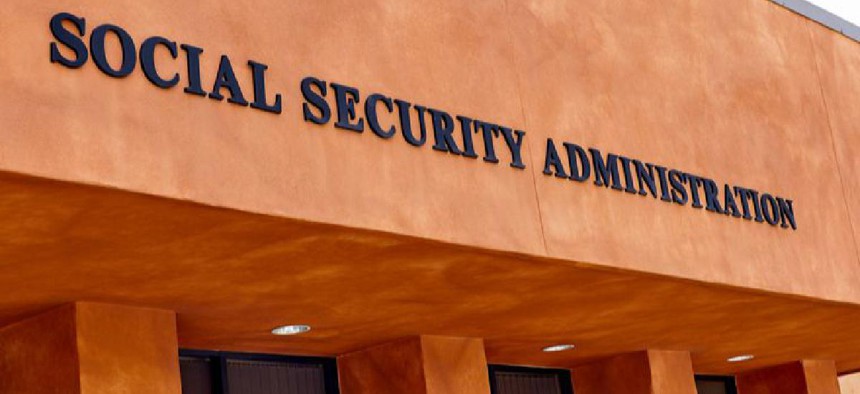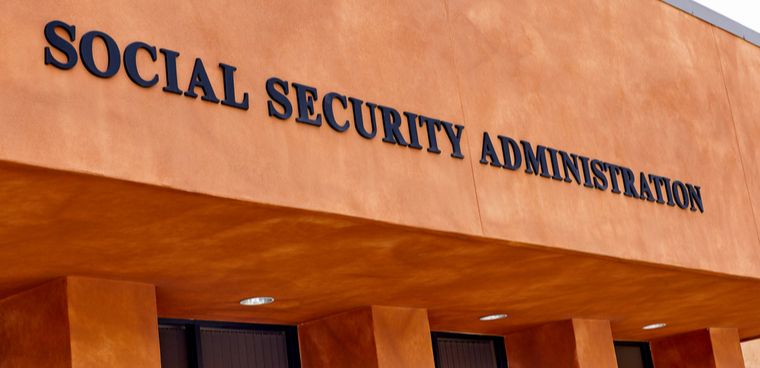Unions press SSA leaders for a new contract, workplace safety plan

Biden ousted top leaders at the Social Security Administration last month, but some union officials say more personnel change is needed further down the ladder.

The two top leaders at the Social Security Administration were fired weeks ago, but union leaders say it will take more action from the agency to repair strained labor-management relations.
On July 9, President Joe Biden ousted Commissioner Andrew Saul and Deputy Commissioner David Black, two leaders appointed to fixed terms by former President Donald Trump. The agency is now under the leadership of acting Commissioner Kilolo Kijakazi, previosly the agency's deputy commissioner for retirement and disability policy.
She has met with union officials, where she "made it clear" that she "respects the bargaining process and wants a collaborative, respectful, and civil labor-management relationship at Social Security" and expects "cooperation and professionalism in meetings with agency management," SSA press officer Mark Hinkle told FCW.
That messaging being communicated to SSA managers -- that they need to work with unions -- is "the exact opposite" of what it had been, said Barri Sue Bryant, president of the American Federation of Government Employees (AFGE) Local 2809, which represents employees at an SSA operations center in Wilkes-Barre, Pa., and member of the SSA General Committee.
It remains to be seen exactly how changes at the top will get worked into the machinery of labor-management relations. In the meantime, union and agency officials continue to clash over contracts and the unions' role, if any, in formulating workplace safety plans.
"SSA has such a longstanding culture of adversarial labor-management relations," said Melissa McIntosh, president of the Association of Administrative Law Judges (AALJ). "It will take a very concerted effort to shift that culture."
Bryant says she's seen some positive changes. Relevant agency officials have been reaching out to her to talk about issues more often and more proactively before changes are implemented.
Other AFGE leaders aren't satisfied. Ralph DeJuliis, president of Council 220, which represents 29,000 SSA employees in field offices and call centers, says there are still instances where the agency will communicate changes to the union at the same time it does to the general workforce.
He wants to see current leadership in the agency's Office of Labor Management and Employee Relations replaced.
If they remain at the helm and AFGE bargains over a contract with them, "it will be nothing but a fight," DeJuliis said. "We will not have any partnership. We will not have any collegiality or cooperation."
When asked about that demand for change in the labor management office, Hinkle told FCW that acting Commissioner Kajakazi "has confidence in the agency's professional career labor-management leadership to carry out her vision of the relationship with efficiency and professionalism."
Both unions have big items on the table.
Replacing their 2019 contract remains a top priority for the AFGE, Bryant and DeJuliis said.
An executive order from January instructed agencies to roll back Trump's union policies. AFGE's current contract was bargained in the wake of now-repealed 2018 Trump executive orders, which limited official time, restricted union use of federal facilities and eased the process for firing poor performers.
Union officials say that that context affected the entire contract, but in an agency review of the agreement finalized in June, the agency identified only sections it deemed impacted by the now-repealed orders.
AFGE has disputed the assessment in writing and has also submitted a union management grievance, Bryant said.
Another top concern is the workplace safety plan, which the agency has implemented already, and is now bargaining with unions.
AFGE expects it will go to impasse, Bryant said. AALJ is already at impasse over the plan, McIntosh said. SSA has a signed agreement already with its National Treasury Employees Union unit, said Hinkle.
Finally, SSA, like other federal agencies, is working through its plans for agency reopening.
It received an extension on the original July 19 deadline for agency re-entry plans to be submitted to the Office of Management and Budget and turned its plan in on July 26. The agency will meet "applicable labor obligations" after OMB has reviewed and approved the plan, Hinkle said.
It's a point McIntosh takes issue with.
"The unions really should be a part of formulating the return to the workplace," McIntosh said. "That is bread and butter terms and conditions of employment, but we have not been involved."
AALJ is scheduled to start negotiating a new contract on Sept. 21 under the order of an independent arbitrator. Since 2020, three arbitrators have found instances of malfeasance from SSA in their work with AALJ.
The judges union will be bargaining with a team led by employees who were found to have committed unfair labor practices by those independent arbitrators, McIntosh said. They were designated before Kijakazi was made the acting commissioner, she said.
The union is going to meet with them in good faith, she said. The two already have set up ground rules.
"But it is going to be very difficult to establish a new relationship when there's been no acknowledgement that they violated the law, and are committed to no longer violating the law," she said. "It's just a very broken relationship, and it's got to take more than lip service."



